
Popular Epson Photo Printers Must Be Updated, or New Ink Won’t Work
A group of Epson's popular SureColor P-series photo printers must be updated with new firmware or new ink cartridges that use a new design won't work.

A group of Epson's popular SureColor P-series photo printers must be updated with new firmware or new ink cartridges that use a new design won't work.

Foxconn, the company that Apple uses to assemble its devices, has closed its Shenzhen manufacturing facility due to a COVID outbreak, leading to concerns over supply disruptions.

The US Commerce Department has published a semiconductor supply chain report that projects the worldwide chip shortage will exist well into the last part of 2022, and possibly even 2023, meaning photographers will likely continue seeing shortages in new cameras for many months to come.
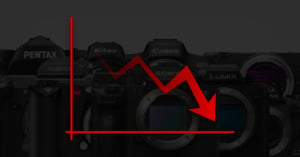
The global silicon shortage has resulted in a lack of supply across the electronics industry and the camera industry has been particularly hard hit. A new report alleges that the problem may be worse than some realize.
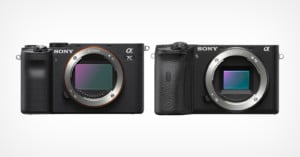
The chip shortage continues to hamper Sony's ability to produce cameras. Today, the company has announced that it is no longer accepting orders for the Alpha 7C and a6600 and has "completed production" on the Alpha 7 II and a6100.

While the global chip and parts shortage has made the availability of new camera equipment scarce across the board and most manufacturers have had difficulty meeting demand, Sony may be the one feeling the biggest pinch.

Sony has announced that it has suspended orders for the ZV-E10, a camera it only announced this past summer. The company has added it to a list of products it has ceased production for as the chip shortage continues.
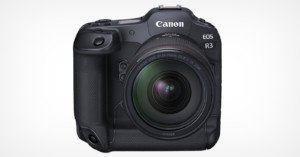
All camera manufacturers are struggling to produce enough supply to meet demand, and Canon is no exception. The company has published an apology stating that it could take more than six months before it is able to deliver on new EOS R3 orders.

Buying a new camera is about to get even harder, as exploding demand in China led by "live commerce" has led to increased supply issues on a system that already cannot meet demand.

Sony says that the effects of the semiconductor shortage are "more serious than expected," which has forced it to make decisions on what cameras and lenses it can continue to manufacture.
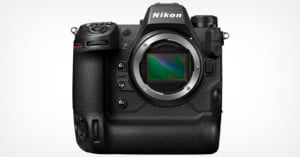
According to reports out of Japan, Nikon is expecting to attempt to meet the massive global demand for the new Z9 camera through an initial production volume of 35,000 units per month. But based on sales volume rumors, it would take Nikon almost a year at that level to fulfill all pre-orders.

Apple is reportedly the latest tech giant to join the mass of others affected by the global chip shortage, as customers are left waiting weeks or longer for the latest devices. The escalating problems will no doubt affect holiday season purchases.

The camera industry suffered a massive blow at the onset of the COVID-19 pandemic, but began to recover just in time for the global supply chain to collapse. Very few want to openly discuss this problem, but the industry is currently in a tough spot.
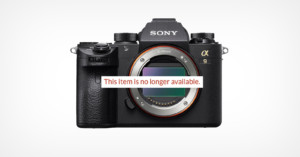
Sony's original Alpha 9 camera has appeared as discontinued through a few retailers, including Adorama, leading to the appearance that the company has retired the sports camera that was originally announced in 2017.